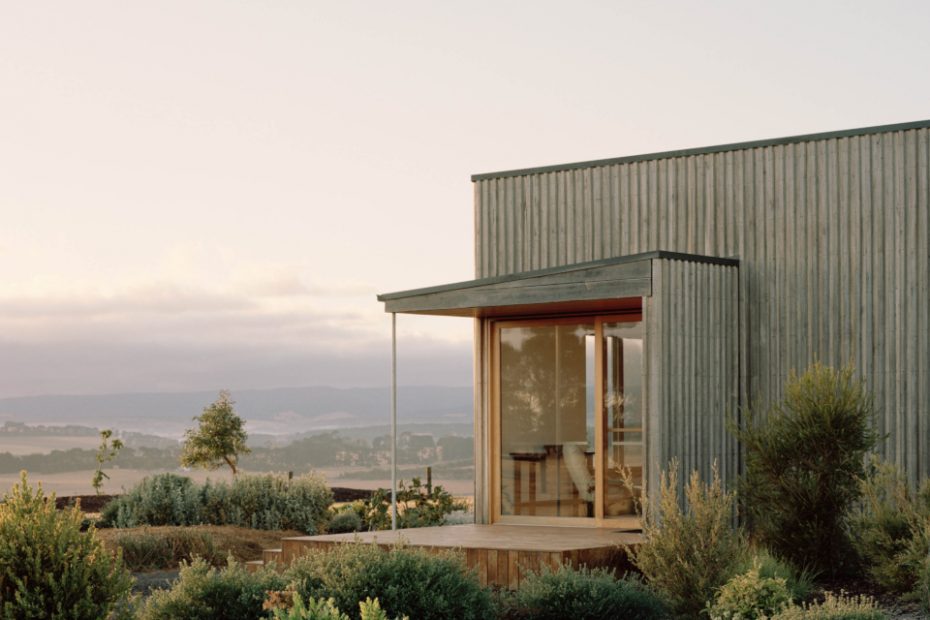A Sustainable Off-Grid Retreat in Rural Victoria
Architecture
The timber facade complements the surrounding landscape and leans into the neutral colour palette.
The orientation of the home, shading and screening to glazing, designing for cross-ventilation are all important aspects of the design that helps reduce the load on the off-grid system and don’t cost anything.
A passive solar design reduces the load of the off-grid energy system, while a woodfired boiler provides warmth throughout the home and minimises the amount of firewood needed.
A lush edible garden provides food for heather and her family.
Food from the garden is processed on the large south-facing deck, designed to be protected from direct sunlight and rain.
Heather uses the Esse Bakeheart oven for both cooking and heating the home.
Handcrafted children’s toys are displayed in the living room — Heather is a kindergarten teacher with grandchildren who enjoy the toys when they come to visit.
Concrete flooring and timber accents add to the neutral aesthetic.
Originally a cattle farm, this 90-acre property became the canvas for an off-grid home designed to work harmoniously with its surrounding rural landscape.
Owner Heather — an artist, gardener and kindergarten teacher — has always led a modest and simple life, so transitioning to living off-grid felt like a natural progression. Engaging Gardiner Architects, her brief was to create a sustainably-designed home influenced by the rural setting and conditions of the site.
This included ensuring the property was protected from prevailing western winds, and creating several covered outdoor areas that could be enjoyed at different times of the year. Sustainability was also key — Gardiner used prefabricated timber for the roof, and a passive solar design to help reduce the load of the off-grid energy system.
‘We wanted to provide Heather with a robust and durable home, which influenced the materiality inside and out,’ Gardiner architect Marlee Dawson explains. ‘Heather wanted quite a pared back palette so a simple mix of neutral tones, white and timber were selected. The timber was whitewashed to ensure it wasn’t too dominant in the space.’
To heat the house, a woodfired boiler made by a local fabricator provides warmth throughout. A lush edible garden is also part of the off-grid design, utilising rainwater and a transpiration septic system for efficient food production. Food from the garden can then be processed on the large south-facing deck, designed to be protected from direct sunlight and rain.
Marlee says the home allows Heather to ‘grow and process a range of food on the site and allows for the opportunity to revegetate the cleared land, which supports the local flora and fauna indigenous to the region’.
The original farm cottage still remains onsite, where Heather’s son and his family reside not far from the new build. But Heather also requested the design incorporated a guest wing — including an area for her to practise art therapy — with space for family to stay, or even guests, should she decide to run an off-grid Airbnb in the future.
Across four years (including delays from Covid lockdowns), Heather’s vision was finally brought to life. Marlee says that the resulting product is a ‘timeless and resilient farmhouse that surpassed the client’s aspirations for a sustainable rural retreat’.
